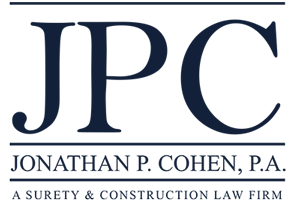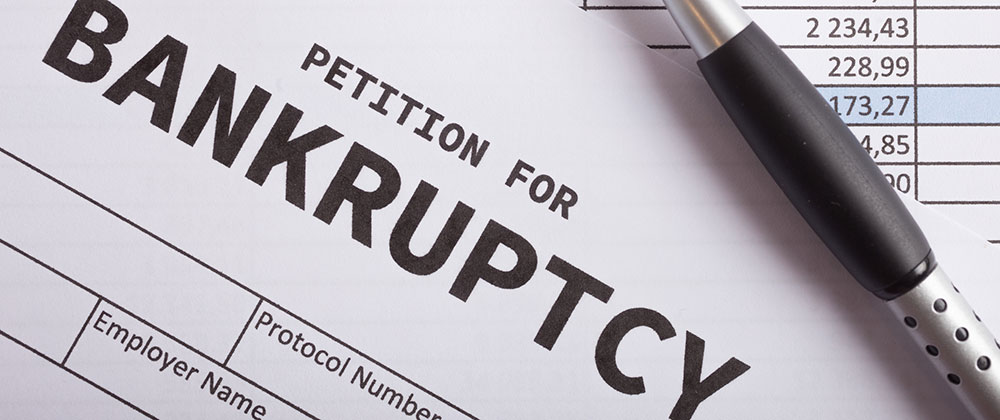Bankruptcy and Construction Contracts
Companies that have been involved in the construction industry for a long time understand that construction involves substantial risks. Changes in the economy and other factors sometimes lead to a party involved in a project filing for bankruptcy protection before the contract is completed. If you are involved in construction, it is critical for you to understand bankruptcy and construction contracts so that you can take steps to mitigate the risk. Here is an overview of bankruptcy law and how it might impact you from Florida construction lawyer Jonathan P. Cohen, Esq.
When a party to a construction contract files for bankruptcy, it can cause substantial problems that place the other involved parties at risk of not receiving payment. To mitigate the risk, the other party should be prepared for the potential that a party could file for bankruptcy so that they can act. The effect of a bankruptcy petition will depend on the bankruptcy Chapter under which the company files for protection.
Chapter 7 Bankruptcy and Construction Contracts
Chapter 7 bankruptcy is a liquidation bankruptcy. When a business files for this type of bankruptcy, its assets will be liquidated by the trustee to repay the business’s creditors a portion of what they are owed. Creditors are paid in a hierarchy with secured creditors being paid first. Then, the administrative expenses are paid, followed by any pre-petition wage claims. Then, priority taxes are paid. Finally, the unsecured creditors are paid. In most cases, unsecured creditors will receive very little of what they are owed. When a Chapter 7 bankruptcy is finished, the debtor business will close. It will no longer be responsible for paying any of the discharged debts.
Chapter 11 Bankruptcy and Construction Contracts
Chapter 11 business bankruptcy is a reorganization bankruptcy. The business will continue to operate under the supervision of the court. The business will submit a plan to reorganize its debts that must be approved by the court and the creditors. The court will not appoint a trustee to oversee the case unless it finds that the debtor-in-possession (the business filing for Chapter 11 bankruptcy) is not acting properly. Typically, the largest unsecured creditors of the business will form a creditor’s committee to monitor the business and negotiate the reorganization plan. If the business can’t reach an agreement for a plan, it can ask the court to confirm its proposed plan over the objection of the creditors. The creditor’s committee can file its own plan if the debtor’s plan is not approved. If a plan is not approved, the judge can convert the case to a Chapter 7 bankruptcy.
When a Chapter 11 plan is confirmed, it is a new contract between the business and its creditors that supersedes any previous contracts. Reorganization plans typically require the debtors to make payments to their unsecured creditors over a few years and provide some remedies for the creditors if the business fails to pay as agreed.
Proof of Claim
Creditors must file a proof of claim with the bankruptcy court before the bar date. The claim will be for any debt the business owed to the creditor before the filing date of the bankruptcy petition. The debtor must identify its creditors at the time that the petition is filed, and the court will issue an automatic stay and notify the creditors. Typically, the court will send the creditors a proof of claim form to complete.
A proof of claim is considered prima facie evidence of the debt unless the debtor files an objection to it. It must be signed under the penalty of perjury and submitted with supporting documentation to the court before the bar date. Claims fall into one of the following categories:
- Secured claim
- Administrative claim
- Priority unsecured claim
- Unsecured claim
Secured claims are those that are secured by collateral such as personal or real property. In construction, a claim by a subcontractor, supplier, or subcontractor will be secured if it is secured by a perfected mechanic’s lien filed against real property.
Priority claims include unsecured claims for unpaid wages up to $4,650 per claimant, child support and alimony, certain types of deposits, and certain types of taxes. General unsecured claims include all of the remaining debts that are not secured or considered priority debts.
Executory Contracts
A Chapter 11 reorganization bankruptcy petitioner can’t pay its credits the amounts it owes under the contracts from before the petition without a confirmed reorganization plan or an order from the court. It can take a year or longer for a reorganization plan to be confirmed, which can cause substantial strain on every other party involved in the construction project. The construction contract will also be considered to be an asset of the bankruptcy estate, meaning the other parties can’t proceed with the job with new parties without risking a lawsuit. Instead, the other parties will need to get approval from the bankruptcy court before they can terminate the bankrupt party’s services or stop working with it.
A construction contract is an executory contract. Under the Bankruptcy Code, the debtor-in-possession or trustee can reject or assume an executory contract. In a Chapter 11 case, the debtor-in-possession will have until the time of the confirmation of its reorganization plan to decide whether to reject or assume an executory contract unless another party seeks and receives a court order compelling the debtor-in-possession to decide earlier.
In a Chapter 7 case, bankruptcy trustees typically reject construction contracts instead of assuming them. In most cases, the bankrupt business will have defaulted on its contract before it filed for bankruptcy, and the other party will have set-off rights against what is owed to the bankruptcy estate. In this type of situation, a bankruptcy trustee will likely find no financial benefit in assuming the contract.
Mitigate the Risk of Bankruptcy
The parties involved in a construction project should mitigate the risk that a party will file for bankruptcy and leave them without payment. Florida’s lien laws offer significant protection to contractors, suppliers, subcontractors, consultants, and others against non-payment. If the liens are perfected, it transforms their claims into secured claims in the event the project’s owner files for bankruptcy. Mechanic’s liens provide the lien-holders with the right to foreclose on the property for the value of the labor or materials they provided.
Another way to mitigate the risk of bankruptcy by a party to the construction contract is to require them to secure payment and performance bonds. These are surety bonds that operate as risk-transfer mechanisms. If a company files for bankruptcy, the parties that haven’t been paid can file claims against the bankrupt debtor’s payment bond to recover what they are owed up to the bond’s penal sum. In the case of a performance bond, the project owner can file a claim against the contractor’s bond when it defaults on its performance of the contract.
Get Help From an Experienced Florida Construction Lawyer
If you are preparing to enter into a construction contract, you should take steps to mitigate against the risk that someone involved might file for bankruptcy before the project is completed. If you are already engaged in a construction project and haven’t received payment for the work you performed or the supplies you provided, you should take steps to properly perfect a mechanic’s lien. Finally, if a party has filed for bankruptcy, you need to make sure to file your proof of claim with the bankruptcy court before the bar date. The law firm of Jonathan P. Cohen, P.A. represents businesses in all of these types of situations. If you are dealing with any issue related to nonpayment or bankruptcy during a construction project, call us today at (954) 462-8850.
The information provided in this article does not, and is not intended to, constitute legal advice. The content in this article is presented for general informational purposes only.

